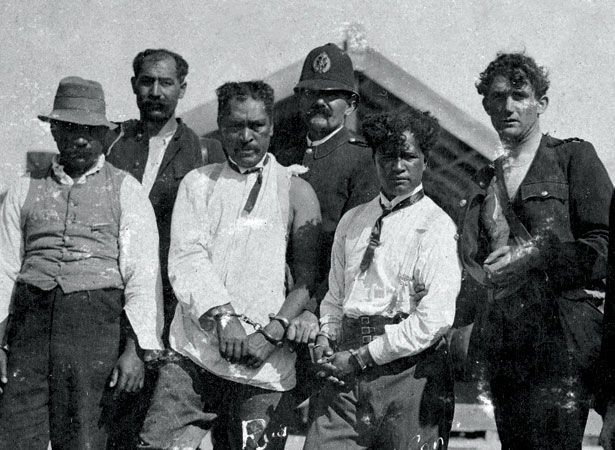
On Sunday 2 April 1916, 57 police raided the Ngāi Tūhoe settlement of Maungapōhatu in the Urewera Ranges.
In 1907, the prophet and community leader Rua Kēnana had attracted 600 followers to Maungapōhatu. While many Pākehā saw the avowedly autonomous kāinga as subversive, Māori politicians like Māui Pōmare and Apirana Ngata believed that traditional tohunga (spiritual leaders) such as Rua inhibited Māori progress.
In 1915 Rua was charged with illicitly selling alcohol. Concerned about his opposition to Tūhoe men enlisting for military service, the government seized this opportunity to punish him.
After Rua failed to appear before a magistrate when summonsed in January 1916, Police Commissioner John Cullen led an armed police expedition to Maungapōhatu. Rua’s son Toko and his close friend Te Maipi were killed during an exchange of gunfire.
Rua and others were arrested on charges ranging from resisting arrest to treason, and taken to Auckland for trial. Rua was sentenced to 12 months’ hard labour followed by 18 months’ imprisonment.
Rua Kēnana was released from jail in April 1918, but the Maungapōhatu community never recovered.
Read more on NZHistory
Rua KēnanaTreaty events 1900-49 – Treaty timelineMāori objection to conscription – Māori and the First World WarRua Kēnana, resisting police – Policing the war effort
External links
How to cite this page
'Arrest of Rua Kēnana', URL: https://nzhistory.govt.nz/arrest-of-rua-kenana, (Ministry for Culture and Heritage), updated 28-Apr-2021
